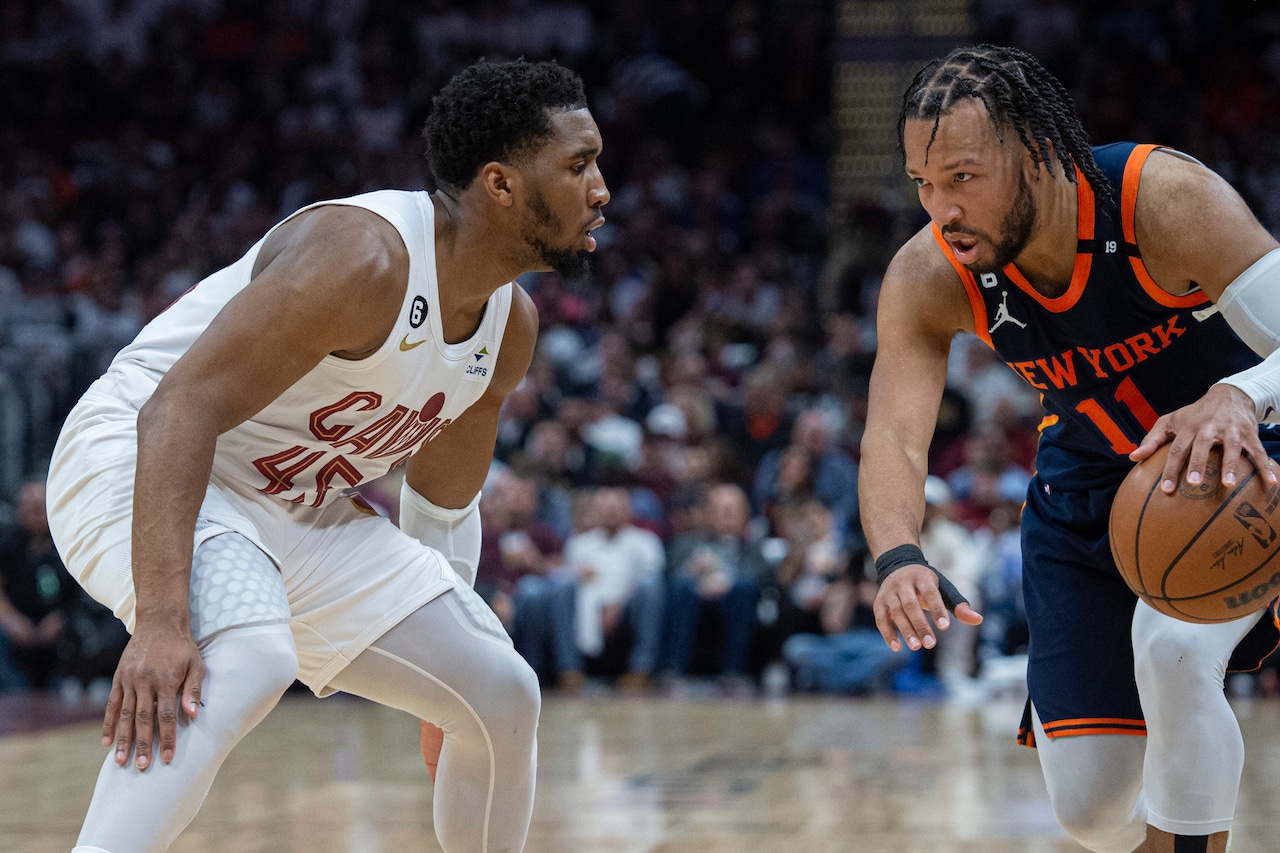CLEVELAND, Ohio — When the NBA announced the Cavs would face the New York Knicks on Christmas Day 2025, it represented the culmination of Donovan Mitchell’s public campaign for a holiday showcase.
But as revealed on the latest Wine and Gold Talk podcast, the Cavs’ selection may have as much to do with what’s missing from the Eastern Conference as what Cleveland brings to the table.
“The East, it’s viewed as down. It’s viewed as not as formidable as the Western Conference,” explained Chris Fedor, cleveland.com Cavs beat reporter, addressing why the schedule makers are positioning Cleveland and New York as the conference’s marquee matchup.
The podcast discussion revealed how the NBA’s storytelling imperatives and scheduling decisions provide a fascinating window into the league’s internal assessment of team hierarchies.
With Boston diminished by Jayson Tatum Achilles injury and the Indiana Pacers without Tyrese Haliburton for the entire season due to the same injury and uncertainty surrounding other traditional Eastern powers, the NBA has been forced to construct new narratives and rivalries to maintain fan engagement.
Jimmy Watkins, cleveland.com columnist, bluntly assessed the situation: “This Christmas slating of Cavs-Knicks is as much about Tyrese Haliburton being gone and Jayson Tatum being gone as it is, ‘All right, the Cavs earned it.’”
This power vacuum has created an unexpected opportunity for Cleveland.
After years of being overlooked in national television scheduling, the Cavaliers have suddenly become central to the NBA’s Eastern Conference narrative.
Not only did they secure the coveted Christmas Day slot, but they’ll also open the season against these same Knicks on Oct. 22 — a clear indication of how the league views these teams.
“I think the story in the Eastern Conference is that there’s uncertainty, but there’s also these two entities in Cleveland and New York that are considered the top two teams in the Eastern Conference, the teams that could battle for the conference throne,” Fedor said, explaining the NBA’s strategic positioning.
The podcast highlighted how the NBA’s scheduling approach reveals its priorities and expectations. Rather than gamble on unproven teams or rebuilding franchises, the league consistently seeks the most reliable storytelling vehicles when constructing its showcase events.
“You try to find the most certainty that you have when you’re amplifying what you’re trying to tell the story of,” Fedor explained. “And the most certainty that you have in the Eastern Conference is that the Cavs are going to be good. How good is the question. The Knicks are going to be good.”
This practical approach to narrative construction explains why certain teams consistently receive prime placement regardless of their championship prospects.
The NBA requires compelling characters and storylines, and teams like Orlando, Atlanta, and Detroit remain in what Fedor described as “prove it mode” — not yet established enough to anchor a marquee event.
For Cleveland, this represents both opportunity and challenge.
While the Christmas Day selection signals the league’s confidence in them as entertainers and competitors, it also carries implicit expectations about their ability to deliver a compelling product.
The podcast conversation also revealed the league’s longer-term strategic thinking.
As Watkins noted, “You’re also trying to build a season long arc here. The West will take care of itself. The West is unbelievable.”
With the Western Conference loaded with established stars and compelling teams, the NBA needs the East to produce its own dramatic narratives.
Interestingly, the discussion suggested the Cavaliers might actually benefit from being positioned as foils to the Knicks rather than the main attraction.
New York, with its massive market and built-in cachet, remains the more valuable property from the league’s perspective.
“The Knicks are the big sell,” Watkins observed. “Truth serum in the league’s front office people, they are rooting for a New York Knicks Eastern Conference championship run. Of course that would be the best thing for the final ratings for the league product.”
In this framework, Cleveland becomes “the Knicks enemy … the biggest challenger to an MSG finals,” providing necessary dramatic tension for the league’s Eastern Conference storyline. While this positioning might feel secondary to being the main attraction, it nevertheless represents a significant step forward for a franchise still establishing its post-LeBron identity.
The podcast ultimately revealed how the NBA’s scheduling decisions function as both recognition of past success and projection of future storylines.
For Cleveland, the Christmas Day slot acknowledges their competitive relevance while challenging them to prove they deserve this spotlight not just for one season, but for years to come.
Here’s the podcast for this week:
If you purchase a product or register for an account through a link on our site, we may receive compensation. By using this site, you consent to our User Agreement and agree that your clicks, interactions, and personal information may be collected, recorded, and/or stored by us and social media and other third-party partners in accordance with our Privacy Policy.

